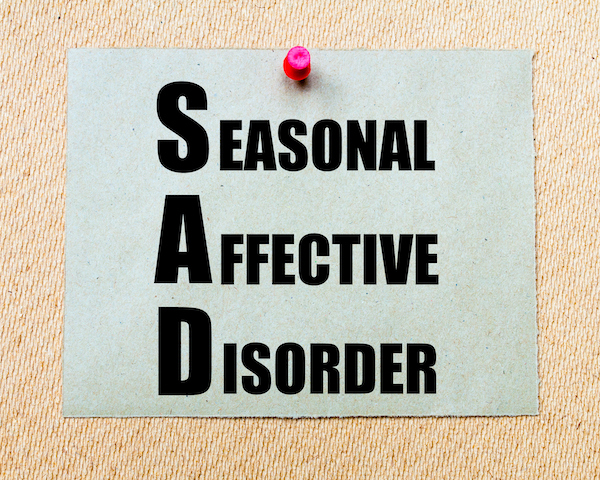Seasonal Changes Affect Our Mood

We often seem to relate a rainy day with a somber mood. Vice versa, we seem to relate a beautiful day with a positive attitude and a feeling of encouragement. That being said, is the weather an actual contributor to the way we feel on a seasonal basis? We will be discussing that concept and more while also pointing out some clinical facts that have been analyzed over the past forty years or so.
In terms of seasons and our mood, the Mayo Clinic points out that during seasonal changes, Seasonal Affective Disorder (S.A.D.) affects individuals in a depression like manner. Most symptoms begin in the fall and linger until spring and this occurs every year in individuals with S.A.D. Although not quite as common, feelings of depression may also be experienced in the opposite direction, beginning in spring and lingering throughout the summer until fall returns.
Seasonal Affective Disorder Symptoms
As previous mentioned, most symptoms occur during late fall and throughout winter but some individuals may have the opposite pattern. Either way, symptoms typically start out mild and become more intense as the season continues. Some signs of S.A.D include the following:
- Feeling sad or down throughout the day
- Loss of interest in favorite activities
- Low energy or feeling sluggish
- Problems sleeping
- Overeating, weight gain or cravings
- Difficulty concentrating
- Feeling hopeless or not worthy
Specific to the fall and winter pattern:
- Oversleeping
- Changes in appetite
- Weight gain
- Low energy
Specific to the spring and summer pattern:
- Insomnia
- Lack of appetite
- Weight loss
- Anxiety
- Irritability
As insightful as the Carpenters may have been with their song titled, “Rainy Days and Mondays”, many of us do feel the effects of the seasonal changes and experience depression. David Watson, a professor from the University of Notre Dame explained that, “For example, if I am feeling down and look outside and see it raining, I may conclude that I am feeling gloomy because it is raining." Watson continues explaining that, “However, if I am feeling down and look outside and see bright sunshine, I quickly conclude that it has nothing to do with the weather. So, we tend to notice and remember those events that are consistent with our beliefs and expectations."
Another study went on to discuss how 497 Dutch teenagers and their mothers were analyzed for mood changes based on seasonal and weather changes. They found that the majority of subjects were unaffected by the weather (47.8%), while 16.8% reacted positively to warm, sunny weather. Another 26.8% of subjects did not like the summer and 8.7% hated rain and were measurably less happy during days with precipitation. On the other hand, those that disliked rain where happier and less angry while enjoying a dry, sunny day.
Whether you fall into none or some of these categories, most individuals tend to feel some sort of way about seasonal changes and many times, it does affect their mood and behavior. If you do feel that you are affected by S.A.D, remember to be conscious of the seasonal changes and prepare yourself to help relieve the feelings of anxiety or depression. Don’t forget that November 6th is the start of the “Fall Back” time change for many throughout the country which coincides with the start of Seasonal Affective Disorder. Stay vigilant of yourself, your friends and your family throughout the seasons and be sure to support any caregivers in your life as they generally have an additional layer of stress and anxiety. As the holiday season approaches, you may want to even consider giving a medical alert system to the care recipient so that caregivers can have a bit more freedom and peace of mind.
- Bridging the Gap: Supporting Seniors Without Nearby Family
- Distance Caregiving Simplified: Modern Strategies for Compassionate Support
- Why LifeFone is the Best Choice for Your Loved Ones Safety and Security
- Beyond Medical Emergencies: The Versatility of Medical Alert Devices in Fall Detection and Beyond
- How to Get Up Safely After Taking A Fall
FREE BROCHURE Today!
